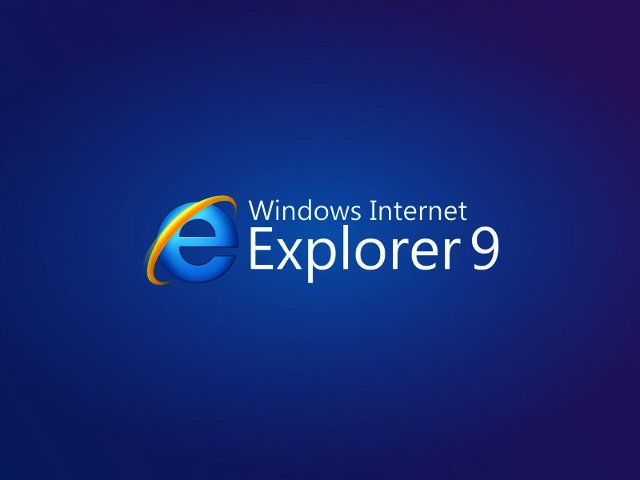PREVIOUS ARTICLENEXT ARTICLE
NEWS

Microsoft launches IE9
By Johan Keyter 15 March 2011 | Categories: news
Microsoft yesterday made the latest version of its Internet Explorer (IE) web browser available to the public, unveiling the browser at the SXSW festival in Austin, Texas.
According to PC Mag, the latest version, IE9, is available for download in 39 languages, but in an oversight that is sure to leave many users disgruntled, the new browser only supports the Windows 7 and Vista operating systems.
Microsoft however boasted about IE9's reliance on the Windows OS in contrast to other browsers (such as Chrome and Firefox) working with multiple OS's.
IE corporate vice president Dean Hachamovitch stated that websites will soon start tapping into a PC's hardware, like regular apps, making a fluid relationship with the OS a must.
"The way sites are going to do that is through the browser. The way the browser does that is through the operating system. Other browsers dilute their engineering investments across a lot of different systems. Because IE focuses exclusively on one, IE can make the most of the Windows experience and PC hardware – just like graphics programs and games have done for years," Hachamovitch said.
Thus IE9 has been developed to utilise more advanced hardware functions such as Microsoft's DirectX 3D and gaming APIs that communicate directly with the PC's GPU.
Another major component of IE9 is HTML5 support. "HTML5 is the secret sauce of the next Web," stated Hachamovitch, "Sites in IE9 can simply do things that they couldn't do before. We allow websites to look and feel more like native apps."
An example of this is Pinned Sites, a new feature in IE9. Users can 'pin' a site onto their Windows 7 or Vista taskbar which will launch a customised browser window outfitted with the particular site's theme, colour and logos. Pinned sites can also produce notifications if new content is available and can develop custom Jump Lists and offer the pinning option right from their homepages.
Microsoft's IE has in recent years seen somewhat of a slump compared to its browser competitors, with Firefox and Chrome aggressively moving into the market. Its browser has also been questioned for its security features, with its previous IE8 browser being successfully hacked recently. The fact that Windows XP (which still runs on almost half of PCs worldwide) is not supported is also not the best of news.
Microsoft however boasted about IE9's reliance on the Windows OS in contrast to other browsers (such as Chrome and Firefox) working with multiple OS's.
IE corporate vice president Dean Hachamovitch stated that websites will soon start tapping into a PC's hardware, like regular apps, making a fluid relationship with the OS a must.
"The way sites are going to do that is through the browser. The way the browser does that is through the operating system. Other browsers dilute their engineering investments across a lot of different systems. Because IE focuses exclusively on one, IE can make the most of the Windows experience and PC hardware – just like graphics programs and games have done for years," Hachamovitch said.
Thus IE9 has been developed to utilise more advanced hardware functions such as Microsoft's DirectX 3D and gaming APIs that communicate directly with the PC's GPU.
Another major component of IE9 is HTML5 support. "HTML5 is the secret sauce of the next Web," stated Hachamovitch, "Sites in IE9 can simply do things that they couldn't do before. We allow websites to look and feel more like native apps."
An example of this is Pinned Sites, a new feature in IE9. Users can 'pin' a site onto their Windows 7 or Vista taskbar which will launch a customised browser window outfitted with the particular site's theme, colour and logos. Pinned sites can also produce notifications if new content is available and can develop custom Jump Lists and offer the pinning option right from their homepages.
Microsoft's IE has in recent years seen somewhat of a slump compared to its browser competitors, with Firefox and Chrome aggressively moving into the market. Its browser has also been questioned for its security features, with its previous IE8 browser being successfully hacked recently. The fact that Windows XP (which still runs on almost half of PCs worldwide) is not supported is also not the best of news.
USER COMMENTS
Most Read Articles
Read

Magazine Online
TechSmart.co.za is South Africa's leading magazine for tech product reviews, tech news, videos, tech specs and gadgets.
Start reading now >
Download latest issue
Have Your Say
What new tech or developments are you most anticipating this year?
New smartphone announcements (45 votes)
Technological breakthroughs (29 votes)
Launch of new consoles, or notebooks (14 votes)
Innovative Artificial Intelligence solutions (29 votes)
Biotechnology or medical advancements (24 votes)
Better business applications (160 votes)



